Editor's Note:The COVID-19 pandemic has posed great challenges on many, including the students and teachers of “Advanced Innovative Research: Social-Emotional Intelligence I”, a course taught by the Department of Psychology. Let’s see why these problems matter, and how they are innovatively coped with.
In many respects, “Advanced Innovative Research: Social-Emotional Intelligence I”is not a common course. It is taught by 4 professors separately, albeit there isn’t that many students. For instance, Prof. Wu Zhen is only teaching 3 students this year.
However, this is normal because the course is hard. Students have to complete a research project on social-emotional intelligence and write an empirical research paper that is ready for publication.
On top of that, the COVID-19 pandemic is taking the difficulty to the next level, for all the innovations to be used in carrying out experiments and collecting data through online platforms.
Liang Yiming, for example, has been doing a research on the mind-mindedness of parents.
To investigate whether parents see their children as individuals with independent thoughts, he invited parents to draw a picture with their kids on the computer, with the parents controlling A key and D key to draw horizontal lines and the children controlling O key and M key to draw vertical lines. Observing the process reveals the parents’ minds – did they command their children, or did they listen and discuss?
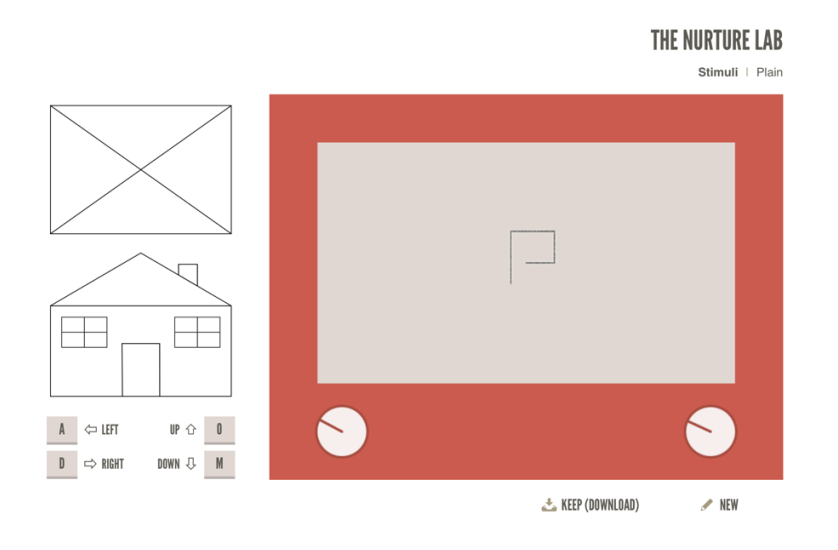
The webpage Liang uses to collect data.
Ma Xinming and Dai Yiqing both looked into preschool children’s stereotypical views on gender, but using disparate methods.
Ma invited children to predict and compare a girl and a boy in terms of their abilities and actions – “How many stickers will he or she share with you? How many questions can he or she answer correctly? Who can do better?”
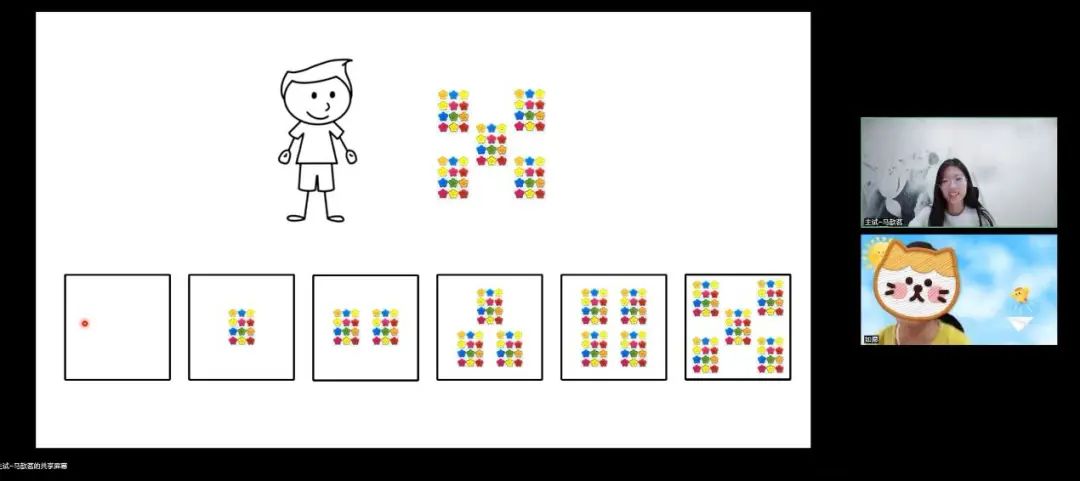
Ma asking the child to predict the number of stickers the boy would share.
Dai, on the other hand, employed a method of storytelling. She told stories, and then invited the children to guess the gender of the protagonist – “The protagonist would like to know what happened, if a person is smiling happily. Do you think the protagonist is a boy, or a girl?”
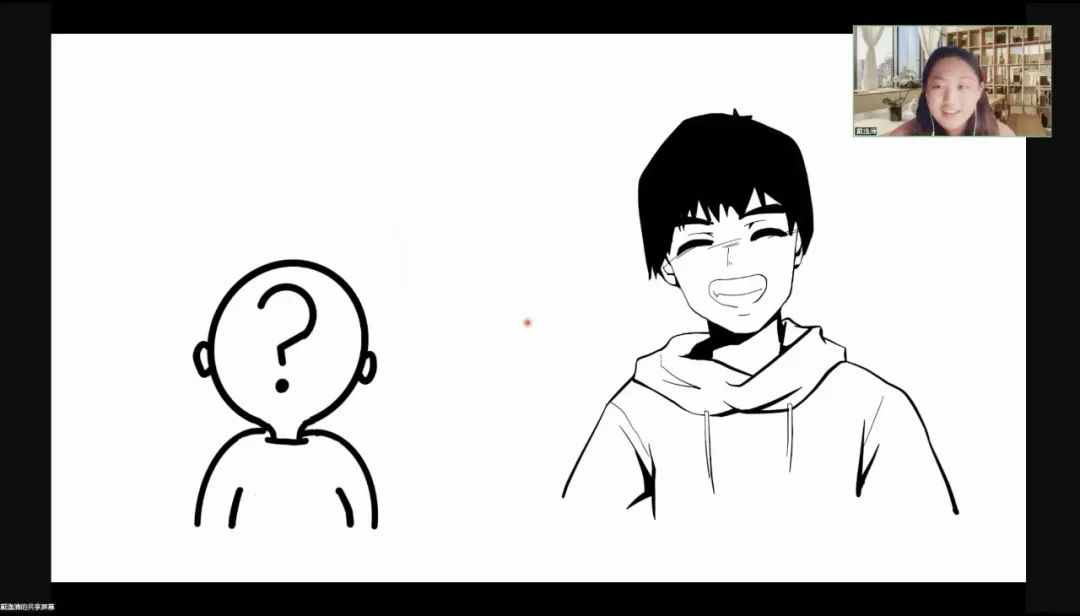
Dai telling a story about a protagonist with unknown gender.
After collecting first-hand data, they will code the information obtained and use it in their research paper.
As the course’s name suggests, the research topics are all questions under the theme of social-emotional intelligence, the process through which individuals acquire and apply the knowledge, attitudes, and skills to understand and manage emotions, set and achieve positive goals, feel and show empathy for others, establish and maintain positive relationships, and make responsible decisions.
Selecting a research topic, designing a research, obtaining and analyzing data, and finally writing a paper, this is what the course “Advanced Innovative Research: Social-Emotional Intelligence I” looks like. Before taking this course to actualize a research project, students would have to first take a lecture course to learn all fundamentals of psychology, and then a seminar course to propose and refine the research design. Targeting third-year and fourth-year undergrads who wish to dedicate themselves in the research of psychology, this single-semester course at the top of the learning pyramid provides students an opportunity to dig deep into a specific field of psychology, with one-on-one personalized guidance to complete the whole procedure of a research project.
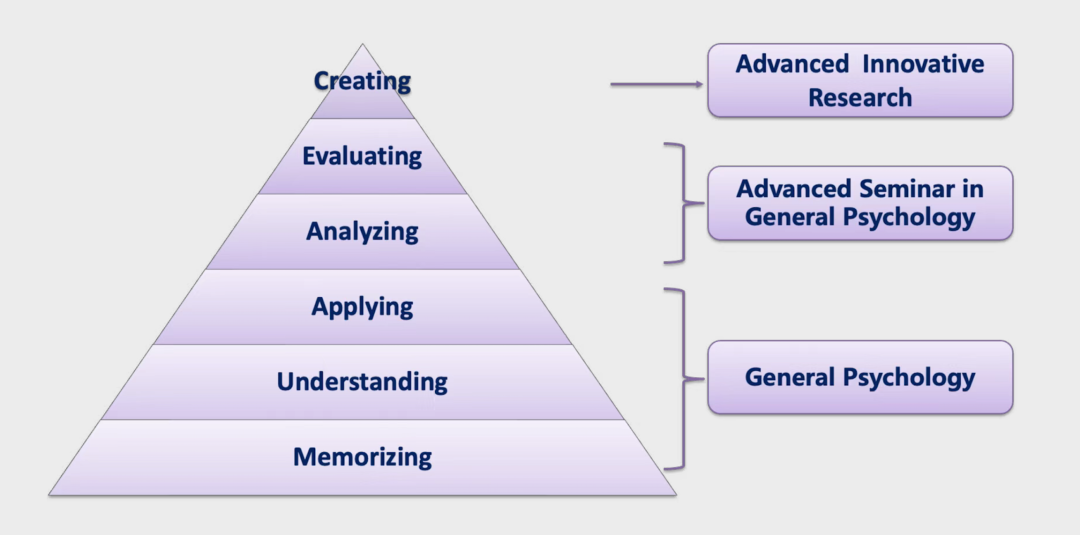
From memorizing, understanding, applying, to analyzing, evaluating, and lastly to creating, students progress through taking the 3 corresponding courses.
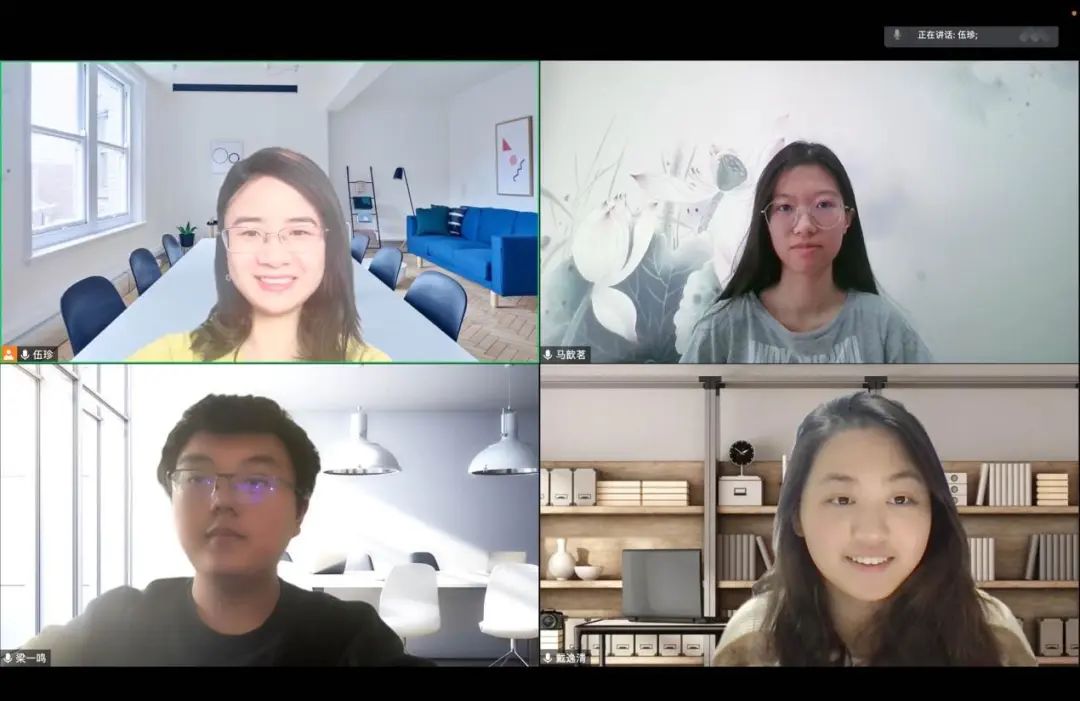
Wu (top-left), Liang (bottom-left), Ma (top-right), and Dai (bottom-right) meeting online for discussion.
To be a good researcher, the prerequisite is being innovative. This was the fundamental idea when the course was designed.
“Innovation isn’t coming from nowhere”, said Wu, “it is built on top of the understanding, mastering, evaluating, analyzing of knowledge, as well as hands-on training.” So, she proposed the 3 stages of cultivating innovative talents at undergraduate learning – from critical reading, evaluating and writing, to project-based academic abilities training and honing, and lastly to supervised, original and open, academic research. The 3 stages aim to eventually prepare students to propose, investigate, and solve problems innovatively.
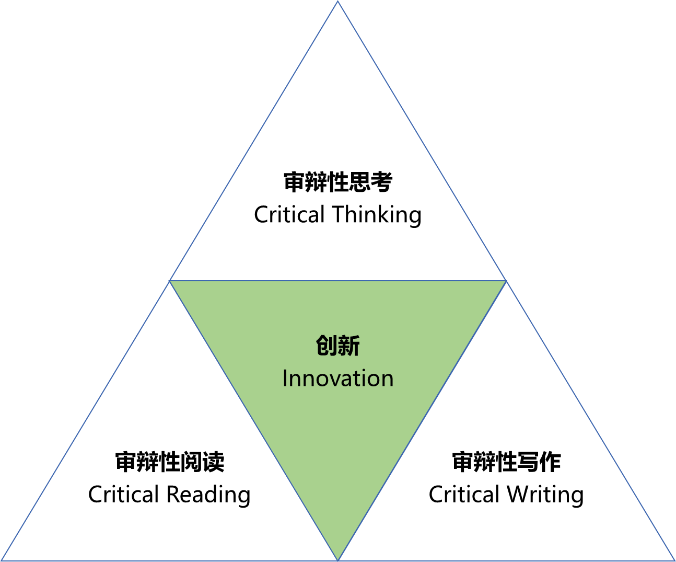
Promoting innovation through the training of critical thinking, reading and writing.
“Advanced Innovative Research: Social-Emotional Intelligence I” belongs to the third stage, which focused on getting hands-on experience of scientific research. However, under the COVID-19 pandemic, researchers have to change their ways of carrying out experiments, or even cancel them. Many teachers may switch to reading papers only.
Nevertheless, Wu insists on giving her students a chance.
“Innovative abilities aren’t cultivated by hollow words, but should be trained by first-person experiences. Do the experiment, interact with the children, and you will see a different world.”
Dai surely agrees. “I feel the fun side of doing research! Unveiled, thus intriguing, hence worth exploring.”